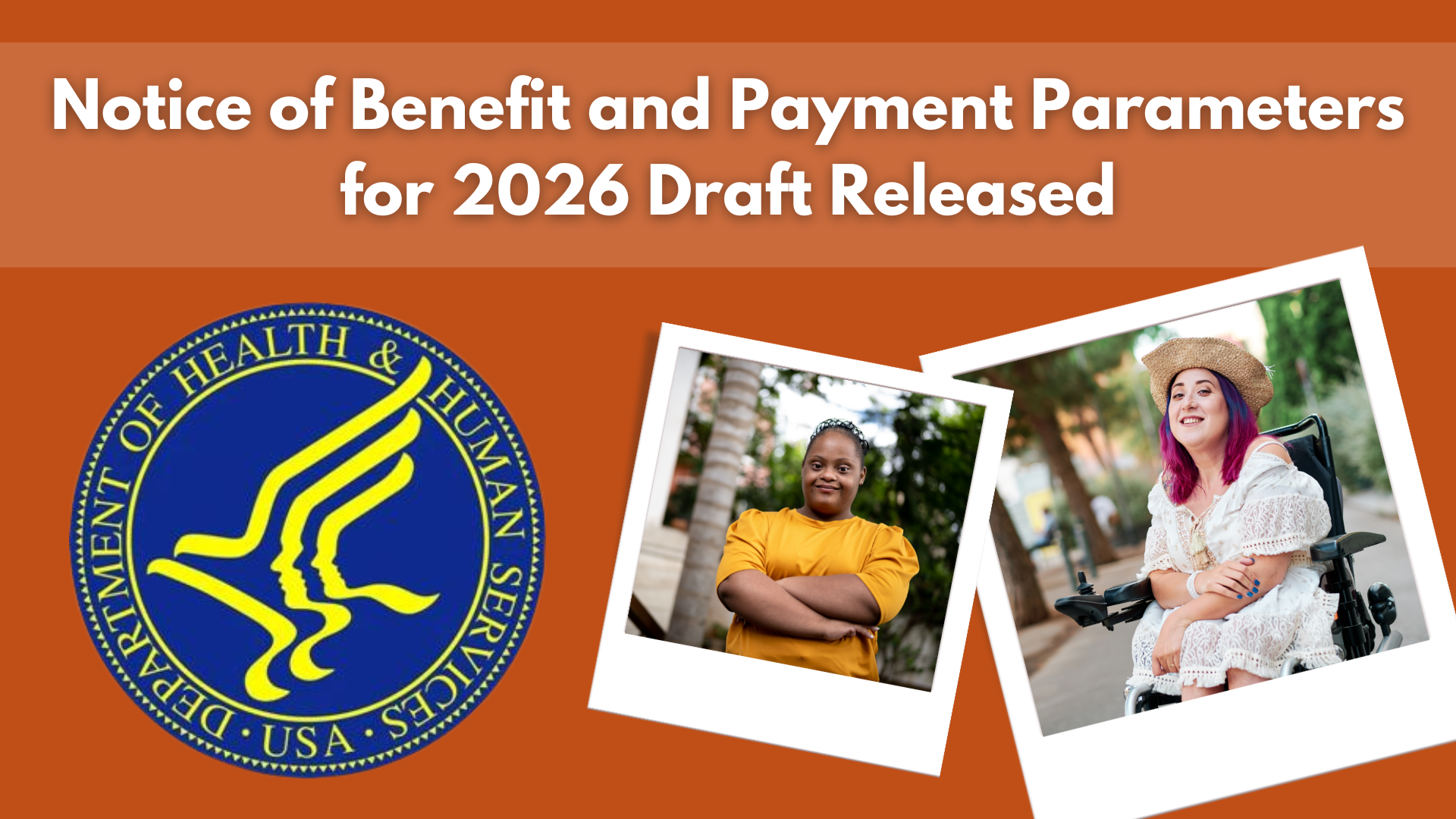The Centers for Medicare and Medicaid Services (CMS) has released a draft of the Notice of Benefit and Payment Parameters for 2026. Health Affairs Forefront covered this extensively through their “Following the ACA (Affordable Care Act)” segment. Here are a few topics that are covered:
- Decrease in fraudulent enrollments and increase in program integrity
- More support for consumers in decision making
- Improvement of consumer experience and maintenance of affordable coverage
As a part of our partnership with the Center on Budget and Policy Priorities, we will be updating all our factsheets in anticipation for Open Enrollment (OE). We have updated Factsheets 4 “Rehabilitative and Habilitation Services and Devices,” Factsheet 5 “Prescription Medication Benefits,” and Factsheet 7 “Mental Health and Substance Use Disorder Parity.” Stay tuned next week for more updates and don’t forget that Open Enrollment starts on November 1, 2024!
The Georgetown University Center for Children and Families (CCF) reported on the increases in uninsured children. This data also showed that preliminary findings found that children of color and those in lower-income families are facing negative impacts of the Medicaid unwinding, two groups that intersect with disability.
However, a new bill could help address these negative outcomes, according to CCF, which would require all states to cover children enrolled in Medicaid and CHIP continuously from birth to age 6 with renewals every two years after the age of 6.
NORC at the University of Chicago released a case study on keeping eligible children enrolled in Medicaid and CHIP. This case study found that collaborative strategies such as more in-depth outreach materials, updated messaging, and sharing renewal data could help address issues with keeping children covered.
The Urban Institute also released a research report on how to improve Medicaid and CHIP redetermination for children, focusing on lessons from the unwinding that would help guide future federal and state policies.
CMS will be hosting training series that focuses on home and community-based services (HCBS) and provisions of the Medicaid Access Rule. Register here! Dates are as follows:
- December 11, 2024 @ 3:00pm ET: Grievance Systems
- February 12, 2025 @ 3:00pm ET: Timely Access, Waiting Lists, Person Centered Planning Reporting Requirements & Minimum Performance Levels
- March 12, 2025 @ 3:00pm ET: Website Requirements
- April 9, 2025 @ 3:00pm ET: HCBS Rate Transparency
- May 14, 2025 @ 3:00pm ET: Medicaid Advisory Committee (MAC) and Beneficiary Advisory Council (BAC)
- June 11, 2025 @ 3:00pm ET: Institutional Rule Provisions
KFF updated their Medicaid enrollment and unwinding tracker. So far, there are 80 million people that are enrolled in Medicaid and CHIP, with enrollment being high than pre-pandemic levels. A breakdown of the data shows that there are 36.8 million children, and 41.1 million adults enrolled in Medicaid and CHIP.
The Administration for Community Living will be awarding over $116,000 to the Iowa Department of Health and Human Services Aging and Disability Services Division to aide in offsetting the costs of these populations in disaster recovery efforts.
Join the Beyond the Basics webinar titled “Plan Design and Plan Comparison” on October 15 at 2 PM ET. This webinar will provide a summary of the policy and process changes enrollees and assisters can expect heading into ACA marketplace open enrollment for 2025. Check out the full fall schedule to register for future webinars!
The American Association on Health and Disability continues their Disability & Health Webinar Series. On October 23 at 2:00 PM ET, tune in for “Autoimmunity, Disability & All of Us,” which focuses on the importance of more inclusive health research for supporting people with autoimmune conditions and non-apparent disabilities. Register for the webinar here.
Keep up with vaccinations this flu season and be prepared with free at-home COVID-19 tests that are accessible for people who are blind or have low vision and those with low manual dexterity. Through the Administration for Strategic Preparedness and Response (ASPR) and the United States Postal Service (USPS), test will be able to detect current COVID-19 variants and can be used through the end of 2024.
Archives of our weekly updates are available on the NDNRC website. Follow us on Twitter/X at @NDNRC!

